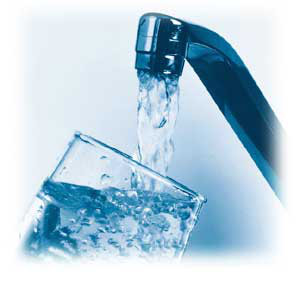The Benefits of Soft Water Systems for Your Home
 If you live in Chandler, Arizona then it’s a safe bet that everything in your home suffers from hard water. If you think about everything that you use water for on a daily basis, then it can add up quickly. Hard water magnifies the issue by causing you to use more water than is necessary which causes your utility bill to skyrocket. At J. I. Plumbing we are often asked about the benefits of installing a soft water system into your home. This is a good question. Below are some distinct advantages of soft water and how it directly benefits everything in your home.
If you live in Chandler, Arizona then it’s a safe bet that everything in your home suffers from hard water. If you think about everything that you use water for on a daily basis, then it can add up quickly. Hard water magnifies the issue by causing you to use more water than is necessary which causes your utility bill to skyrocket. At J. I. Plumbing we are often asked about the benefits of installing a soft water system into your home. This is a good question. Below are some distinct advantages of soft water and how it directly benefits everything in your home.
What is Hard Water and What Causes It?
First things first. You may not know what hard water is or why it’s called ‘hard’ water. Water that is considered hard is water that has a high content of minerals as a part of the chemical makeup of the water itself. When water passes through deposits of limestone or chalk it picks up mineral residue. These deposits harden the water and make it less applicable for cleaning, cooking, or showering. The harder water, the less it’s able to absorb materials due to the concentration of the minerals. It becomes less effective for a number of applications. In some cases the hardened water is only temporary. In other cases, however, it can be permanent. Much of this depends on which area of Arizona you live in.
The Effects of Hard Water
The most noticeable effect of hard water is how it interacts with different types of metals. This ranges from the plumbing in your home to any appliances which are made of metal. Generally speaking, this affects all of your appliances. This includes refrigerators, dishwashers, washers and dryers, and so on. Over time the metals in your appliances or plumbing will become corroded, rendering them more ineffective as they wash dishes or clothing. This also means that the corrosion ends up on your skin when you shower or use any type of faucet. Although these mineral deposits do not create any type of negative health effects, in extreme cases it can have some effect on the body and can muster some concern.
How Do Water Softeners Work?
In essence, water softeners work by exchanging the minerals for sodium. They are installed in an initial part of the plumbing system in order to make the exchange before the water reaches any fixture. So whether the water is traveling into your water heater, an appliance, or a shower head, by the time it reaches it’s destination, all of the minerals are depleted and a softening agent is applied. If you’ve ever been in a home where water softeners are installed, you immediately notice the difference when the water touches your skin.
Softeners Make A Huge Difference
Water softeners keep corrosion from occurring in your appliances. They automatically soften your clothing, and they also help cleaning soaps or detergents by allowing them to properly lather. The results is cleaner clothes, dishes, and skin while using less water. You don’t waste the water that you are utilizing. So, in effect, your water bill is lower and you see greater results in your cleaning. There are several types of water softening systems that you can use. You can get anything from a single fixture mini system to whole house units.












